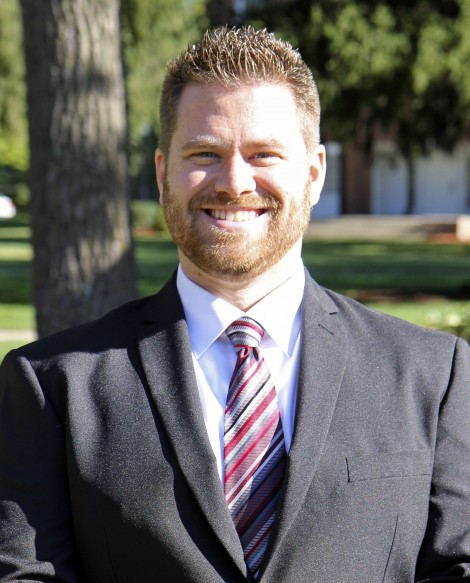
Ohio Wesleyan Program to Examine the Business of Legalizing Marijuana
DELAWARE, Ohio – From a business and economic standpoint, how would Ohio be affected if residents vote to legalize marijuana? How would companies navigate the challenges of working with a product considered illegal under federal law?
Justin Breidenbach
Ohio Wesleyan University will address these issues in a panel discussion, “CannaBusiness: Hurdles and Successes in the Marijuana Industry,” at 7:30 p.m. Oct. 27 in Gray Chapel inside University Hall, 61 S. Sandusky St., Delaware. The event, exploring business and economic issues only, will be moderated by Justin Breidenbach, OWU assistant professor of accounting.
Breidenbach’s current academic research involves studying the creation of a marijuana industry, including taxing, state licensing, financial sustainability, and leadership issues. He has met with owners in the industry and toured growing, processing, and retail facilities. In addition to moderating the panel discussion, Breidenbach will speak as a panelist regarding tax regulations and their implications.
“The legal state marijuana industry is dealing with unique business factors that are unknown to the general public,” said Breidenbach, MAcc, CPA, CFE, who has not received any outside funding to support his research.
“There are many misconceptions about how this industry operates,” he continued. “Many believe this industry is a new-age gold rush. While some companies are doing well, there are just as many that are struggling to keep their doors open. If Ohio is to legalize marijuana, it is important for people to understand how this industry will operate and navigate the many hurdles to stay afloat.”
Those hurdles, Breidenbach said, include producers not being able to deduct many “routine” expenses from their federal taxes as well as struggling to find banks willing to handle their accounts.
Additional CannaBusiness panelists are State of Washington licensed growers Steve Walser of Buddy Boy Farm and Rachel Cooper of Monkey Grass Farms. Both have Tier 3 licenses, the largest-scale license in the state, and both were among the earliest license holders when Washington legalized recreational marijuana in 2012.
Walser has more than 40 years of experience in large-scale organic vegetable, fruit, grain, and hay farming. He has a strong handle on the agricultural side of the product and understands how to grow and harvest efficiently.
Cooper comes from the corporate world with a background in marketing and promotions. She serves as chief operating officer for her company and understands the many issues involved with doing business in the marijuana industry.
The Oct. 27 panel discussion is organized by Ohio Wesleyan’s Woltemade Center for Economics, Business and Entrepreneurship. Founded in 1985, the center’s mission is to enhance academic programming and real-world opportunities to create future generations of business and world leaders. The center also serves as a resource connecting the university and business communities, which includes bringing speakers to campus to share expertise and creating partnerships with businesses to provide mutually beneficial student internships. Learn more at https://www.owu.edu/academics/departments-programs/department-of-economics/the-woltemade-center/.
Founded in 1842, Ohio Wesleyan University is one of the nation’s premier liberal arts universities. Located in Delaware, Ohio, the private university offers 86 undergraduate majors and competes in 23 NCAA Division III varsity sports. Ohio Wesleyan combines a challenging, internationally focused curriculum with off-campus learning and leadership opportunities to connect classroom theory with real-world experience. OWU’s 1,675 students represent 43 U.S. states and territories and 33 countries. Ohio Wesleyan is featured in the book “Colleges That Change Lives,” listed on the latest President’s Higher Education Community Service Honor Roll with Distinction, and included in the U.S. News & World Report and Princeton Review “best colleges” lists. Learn more at www.owu.edu.
